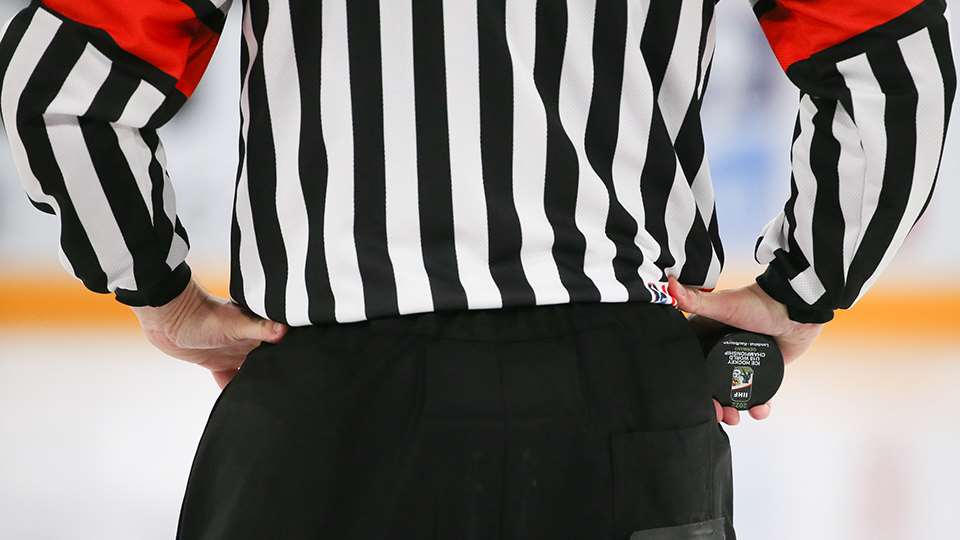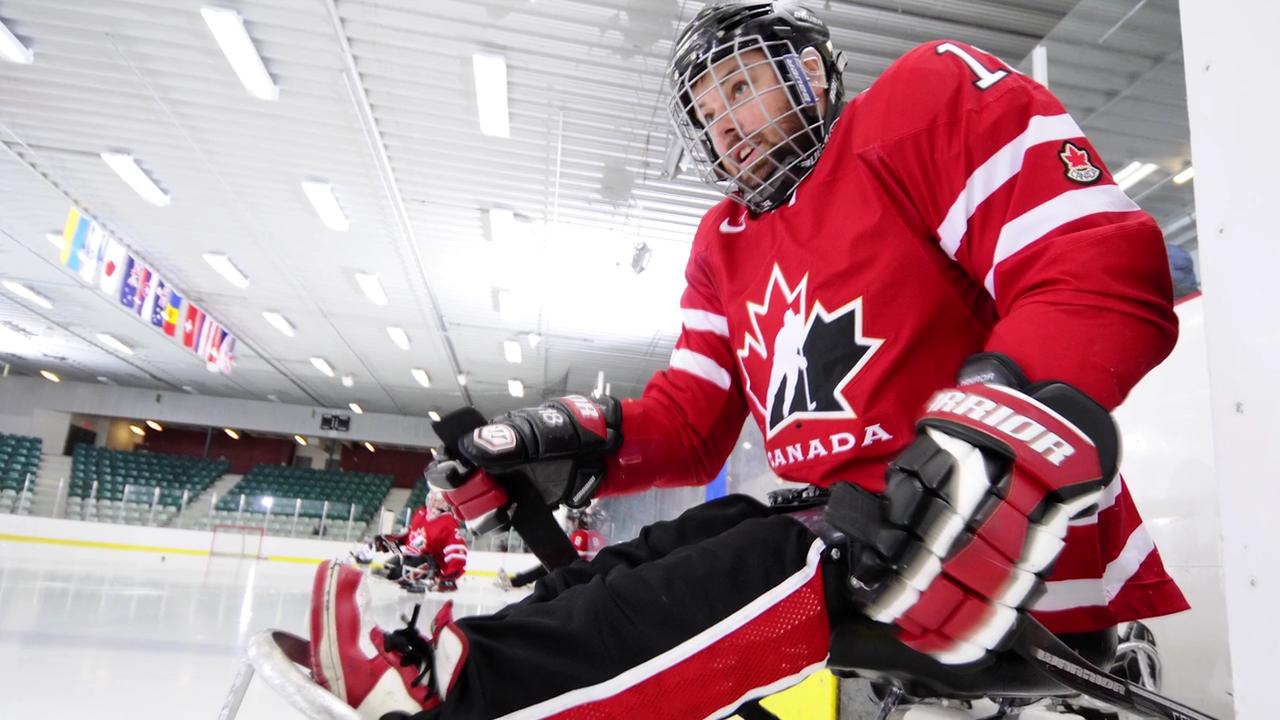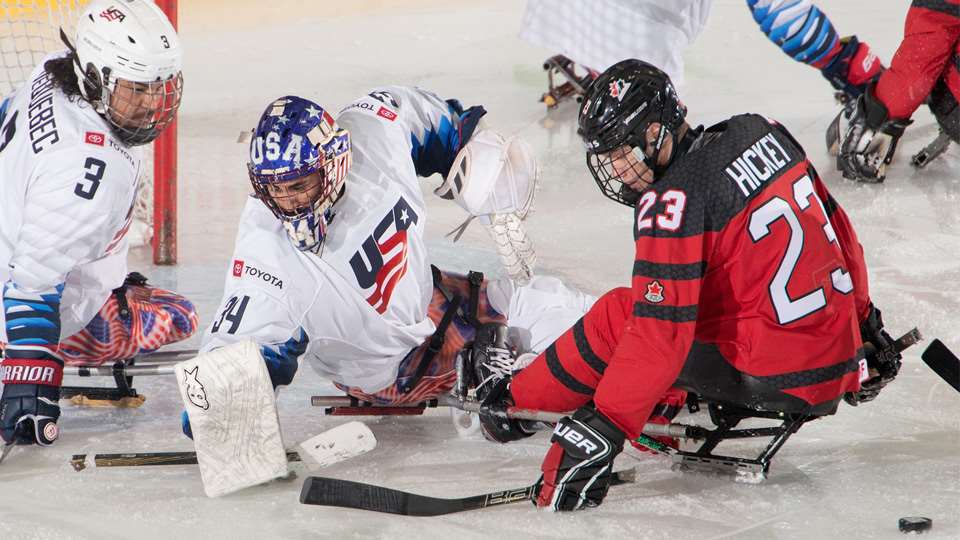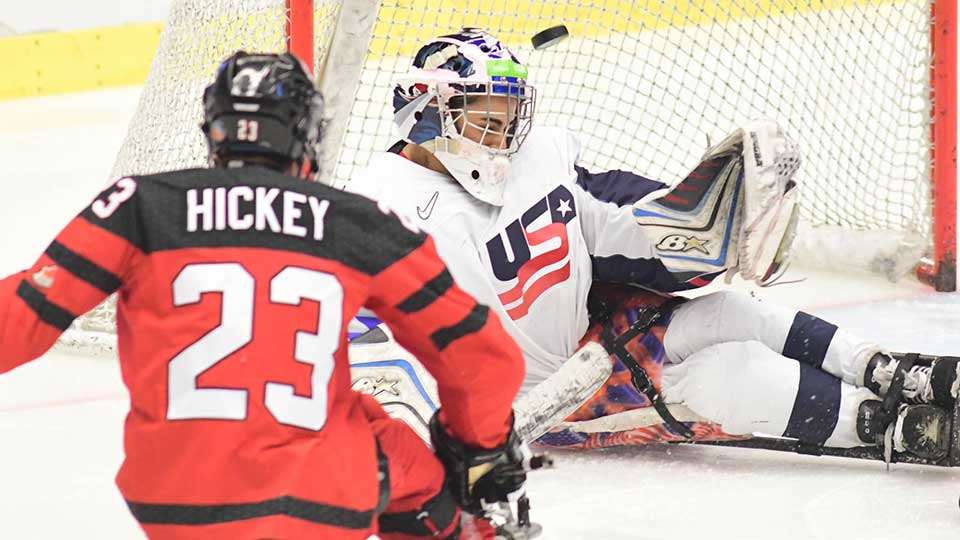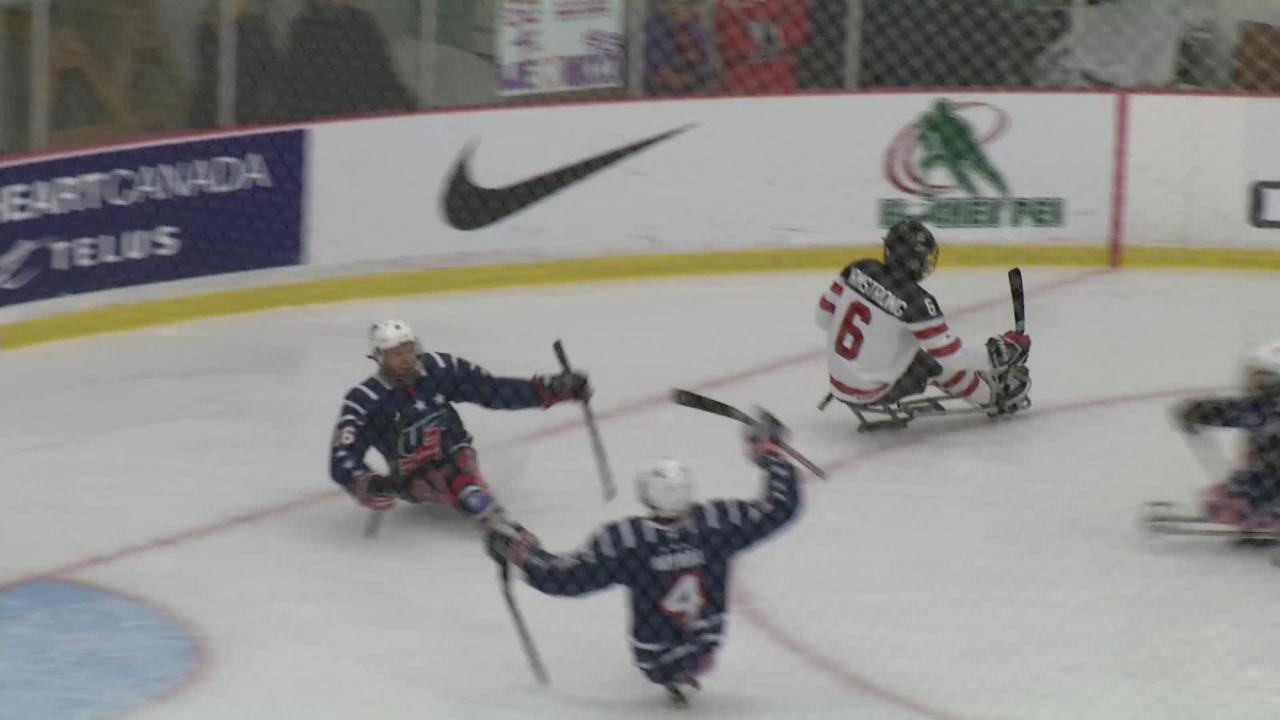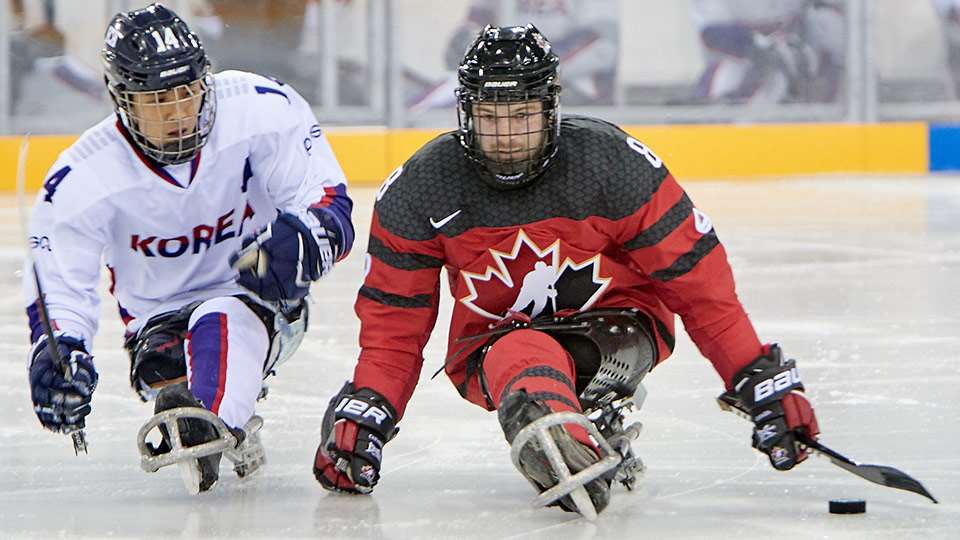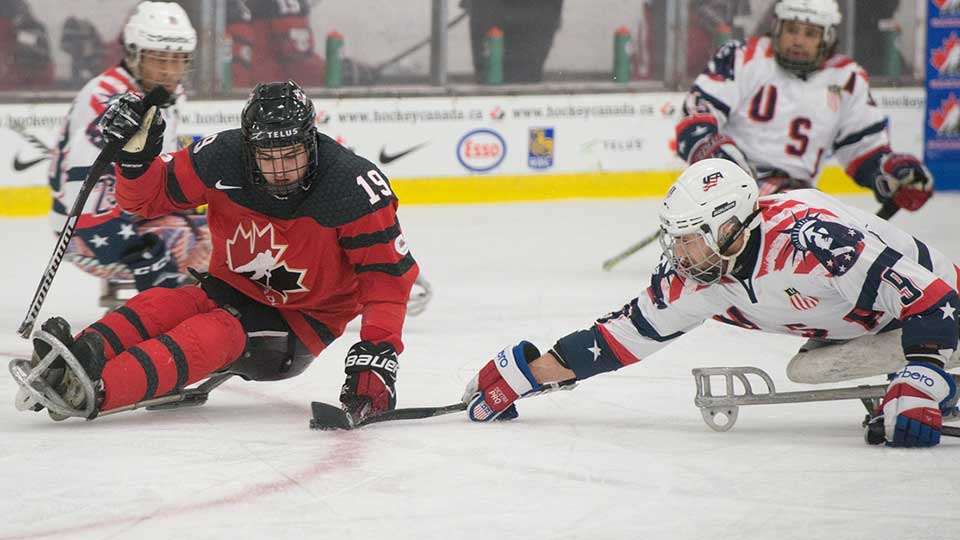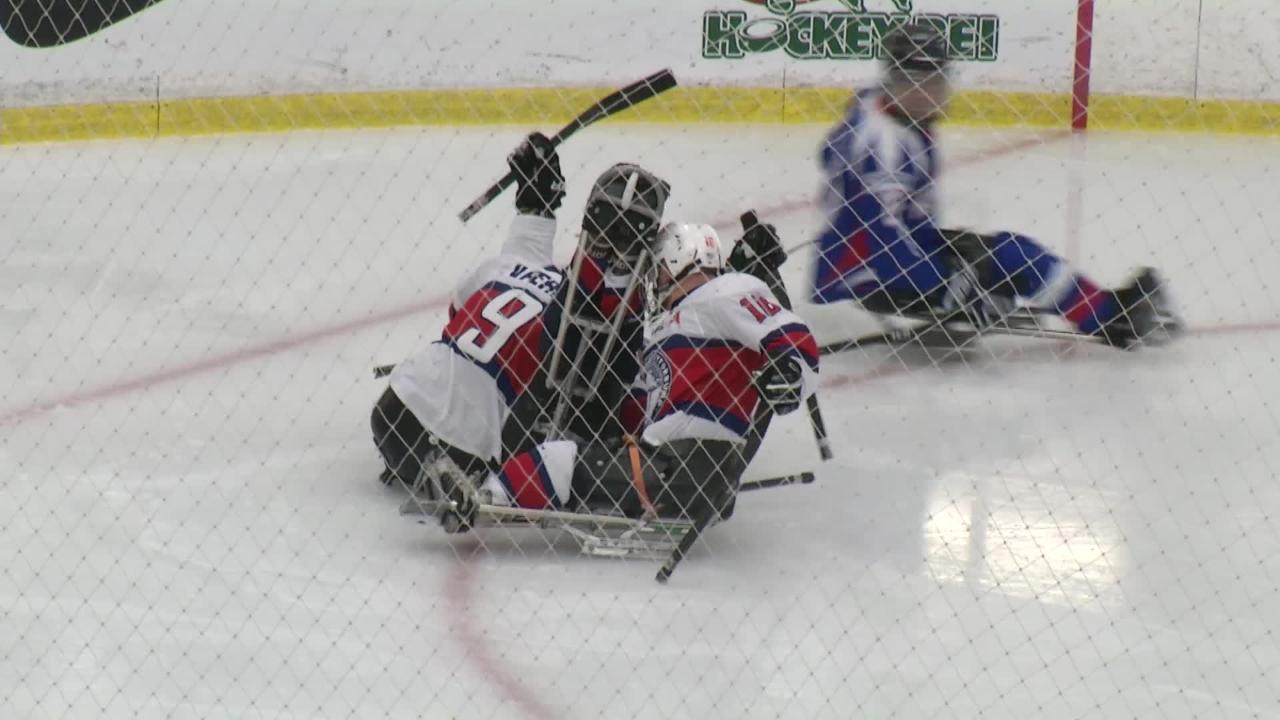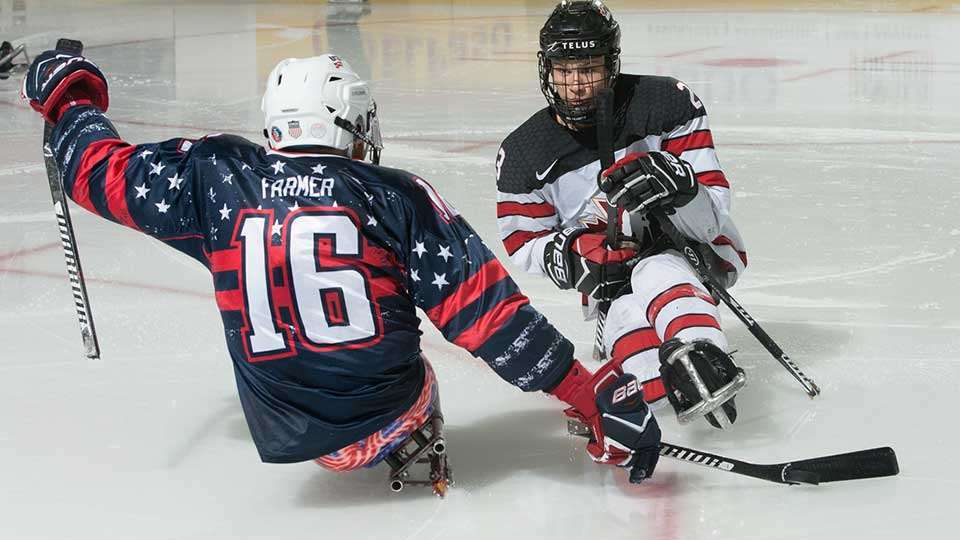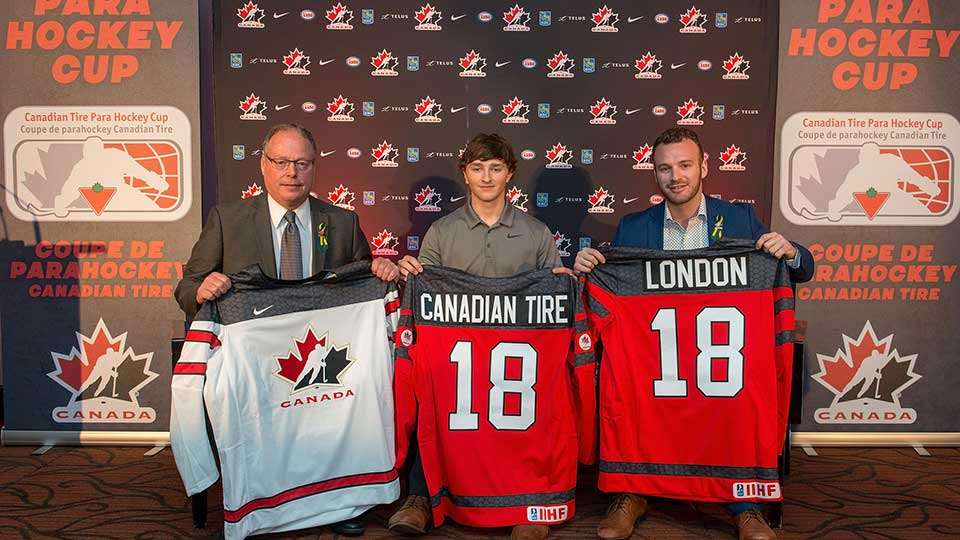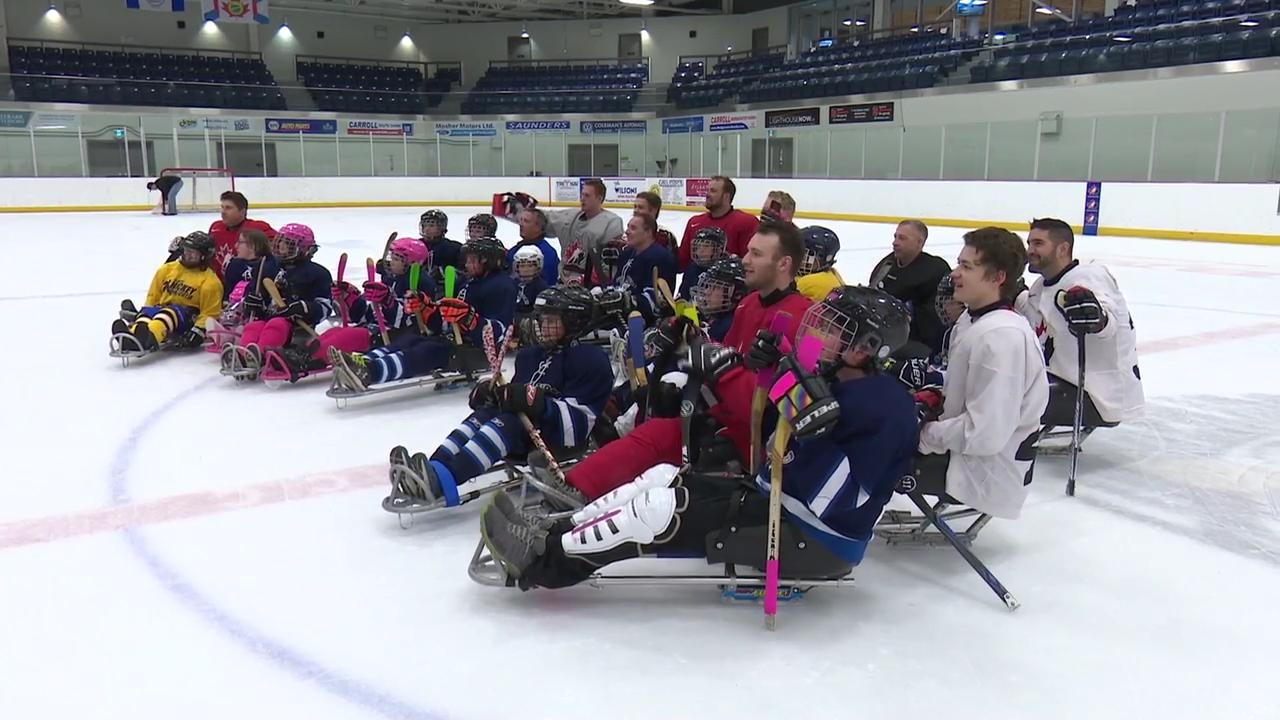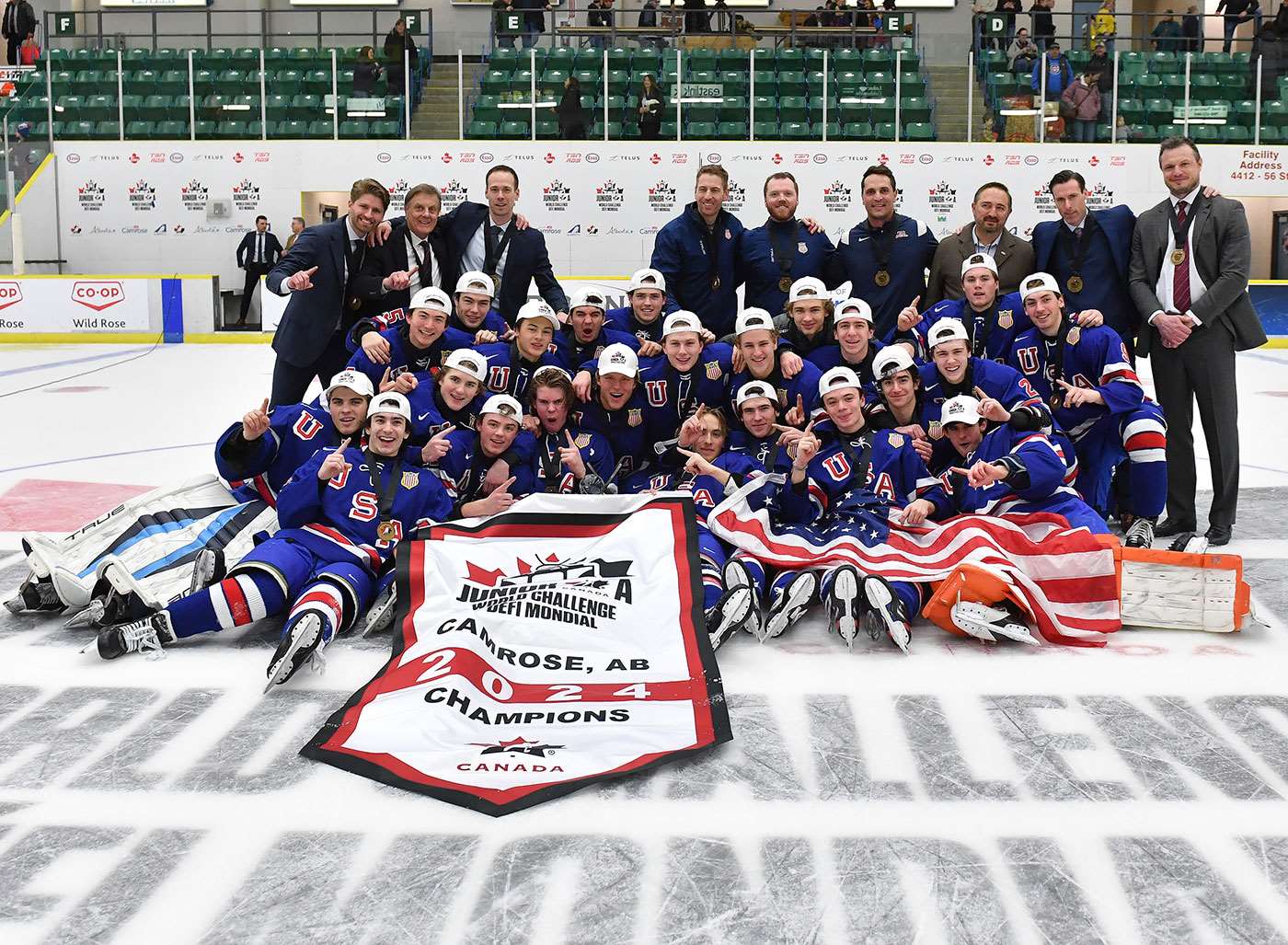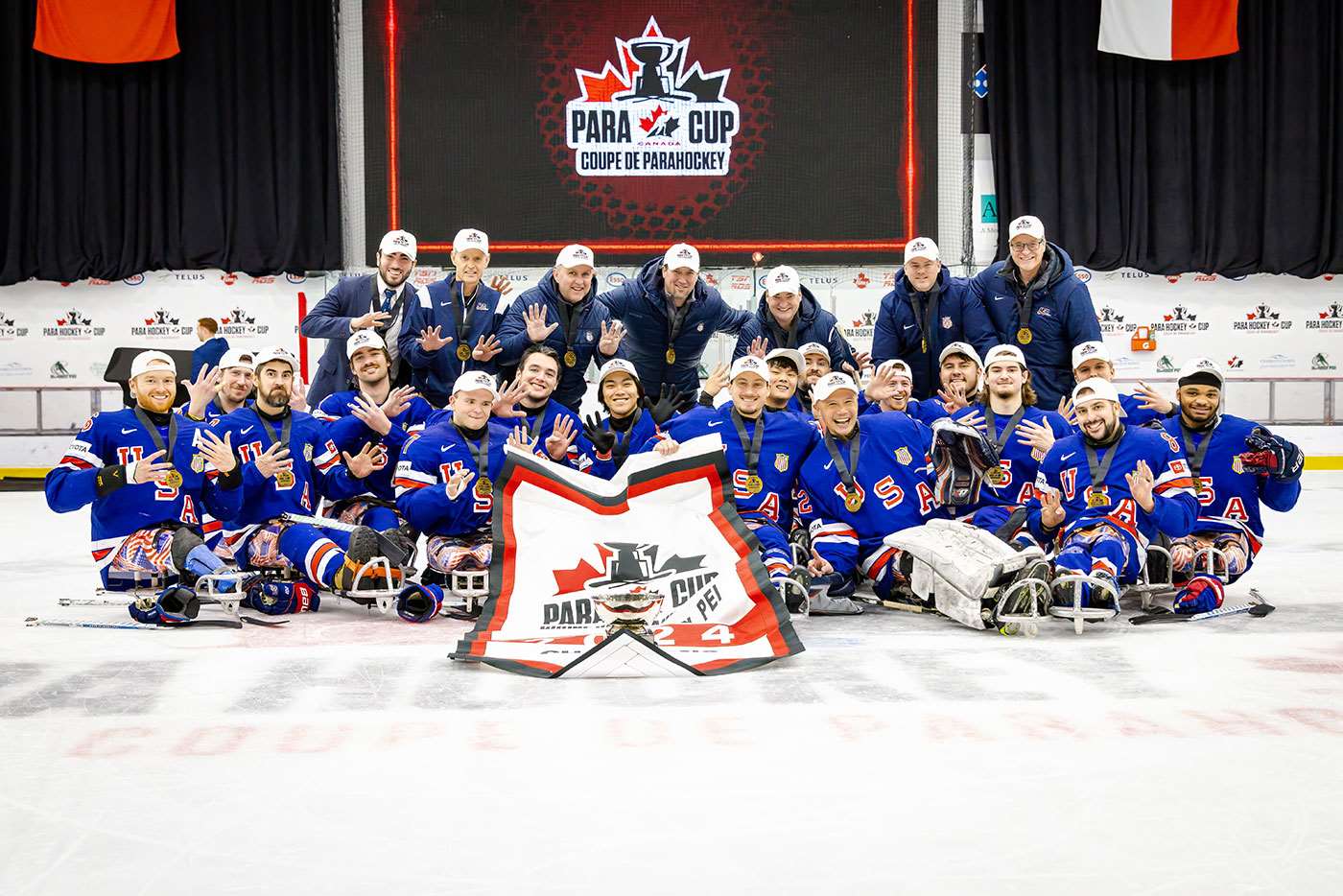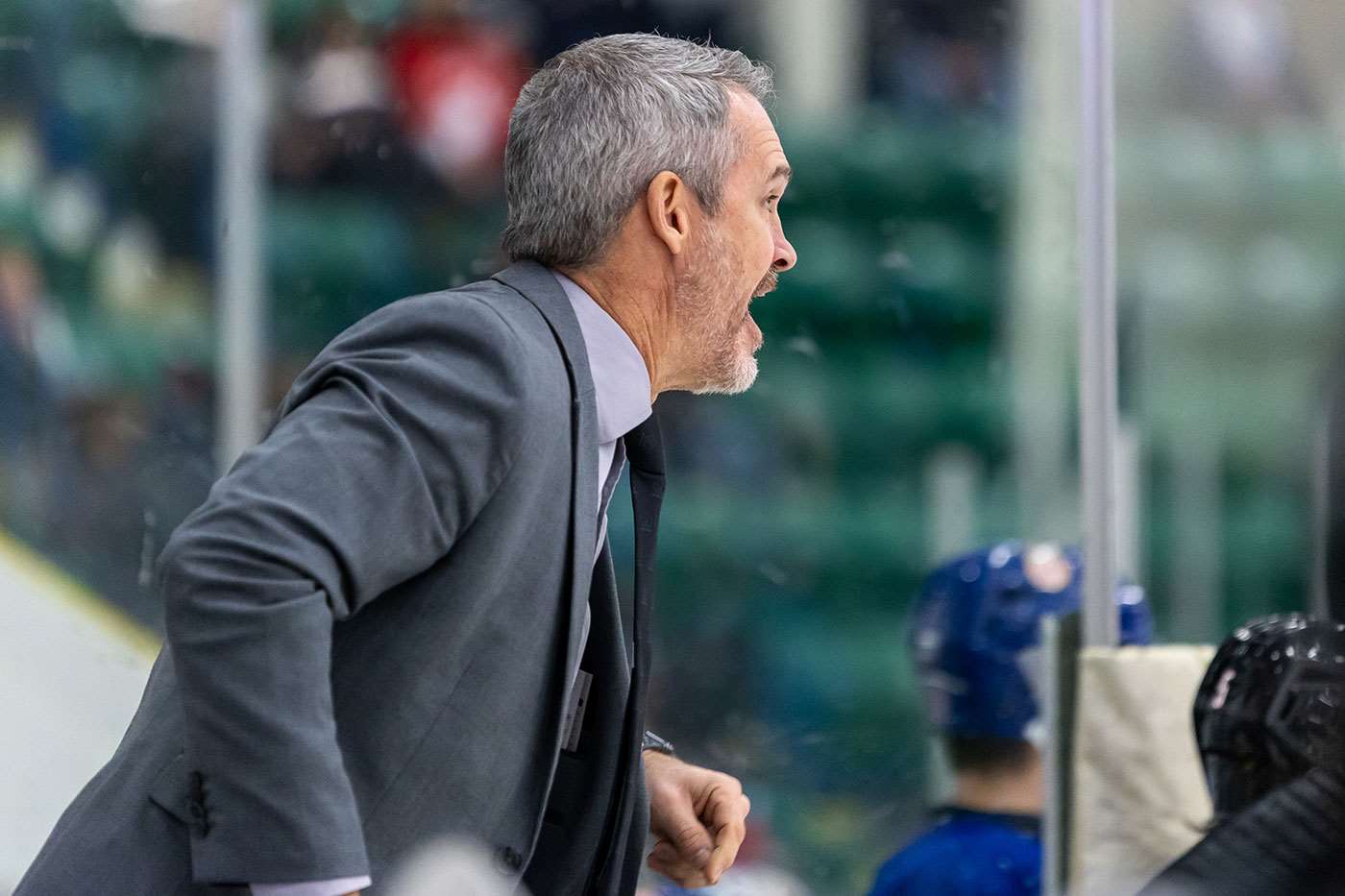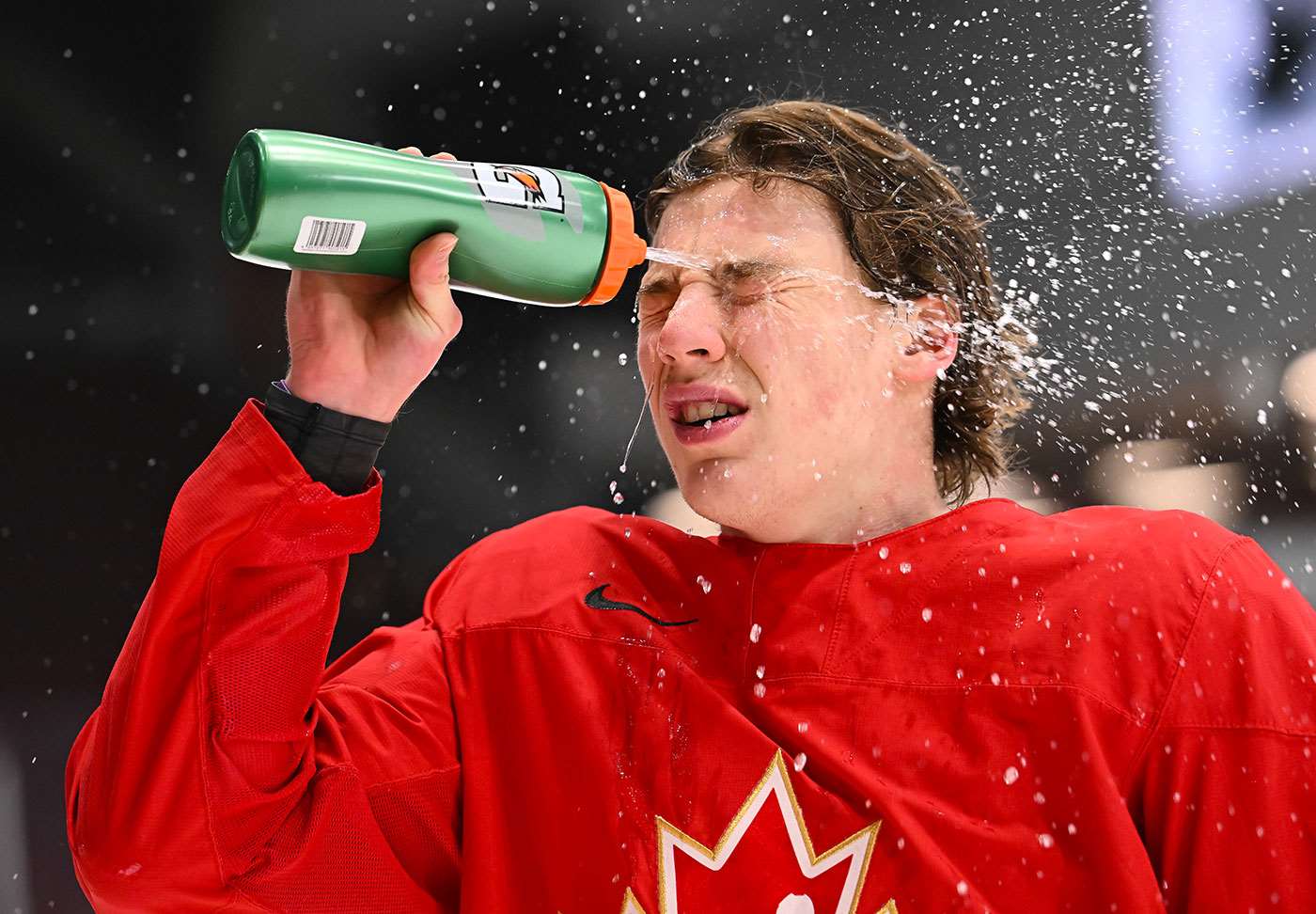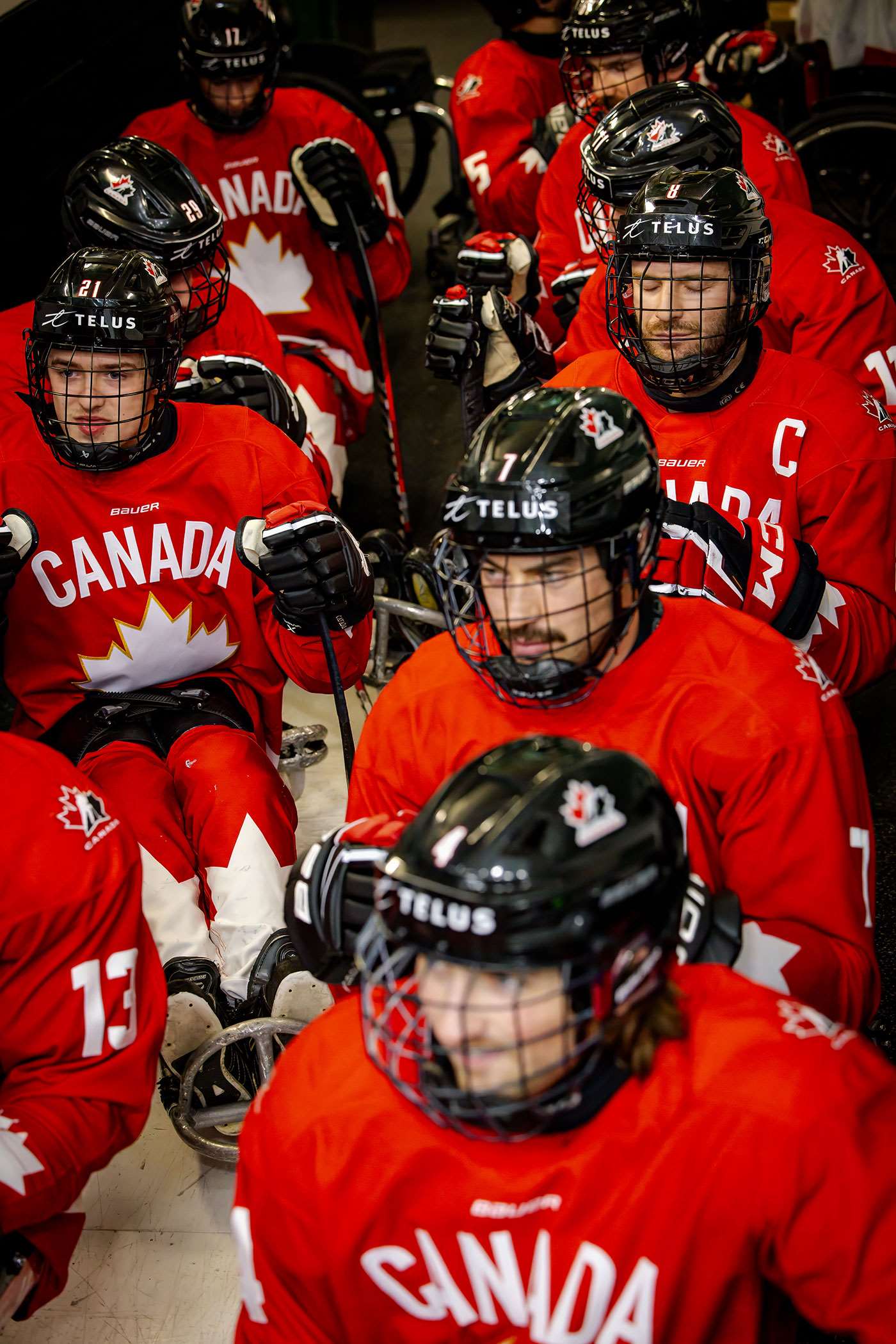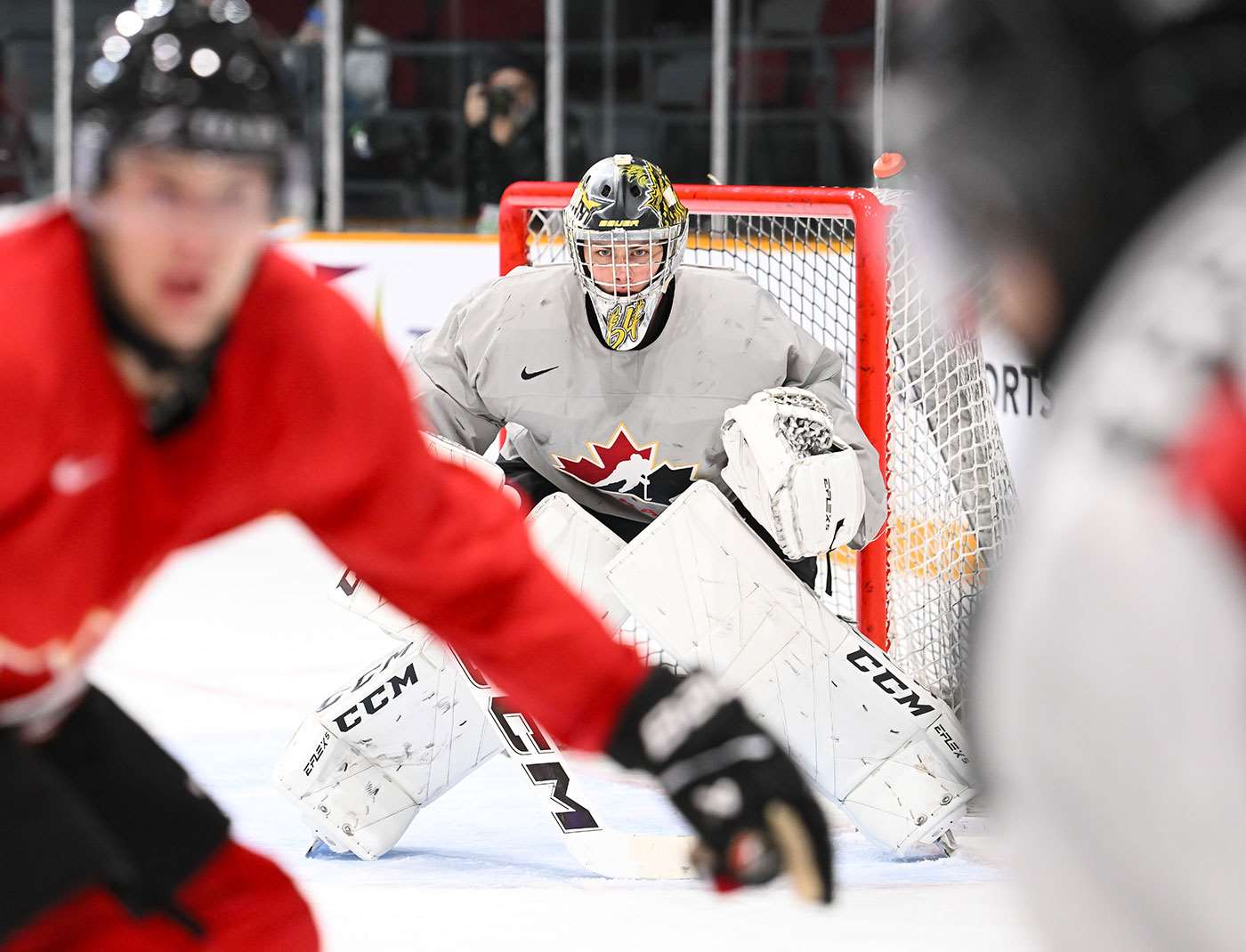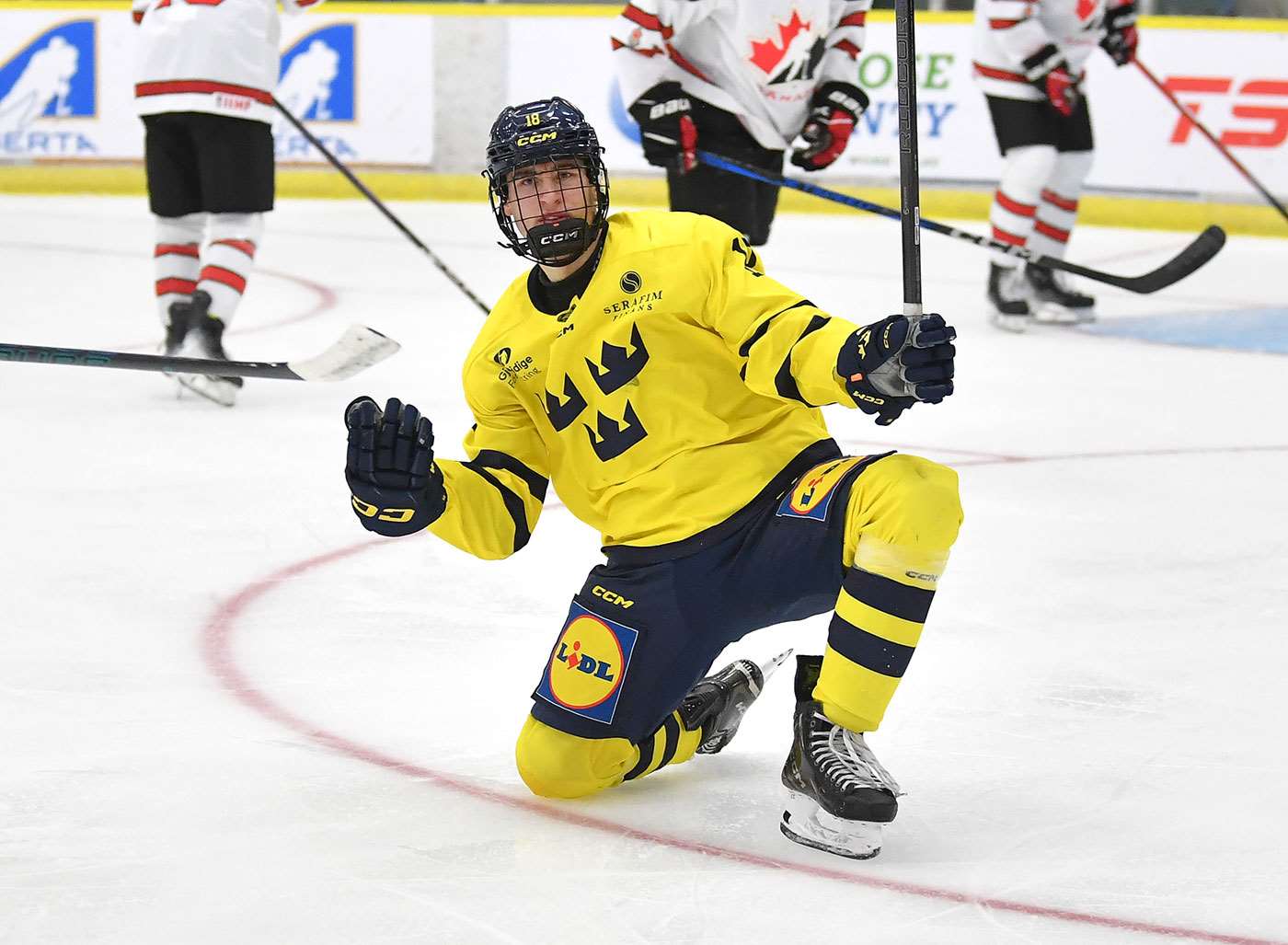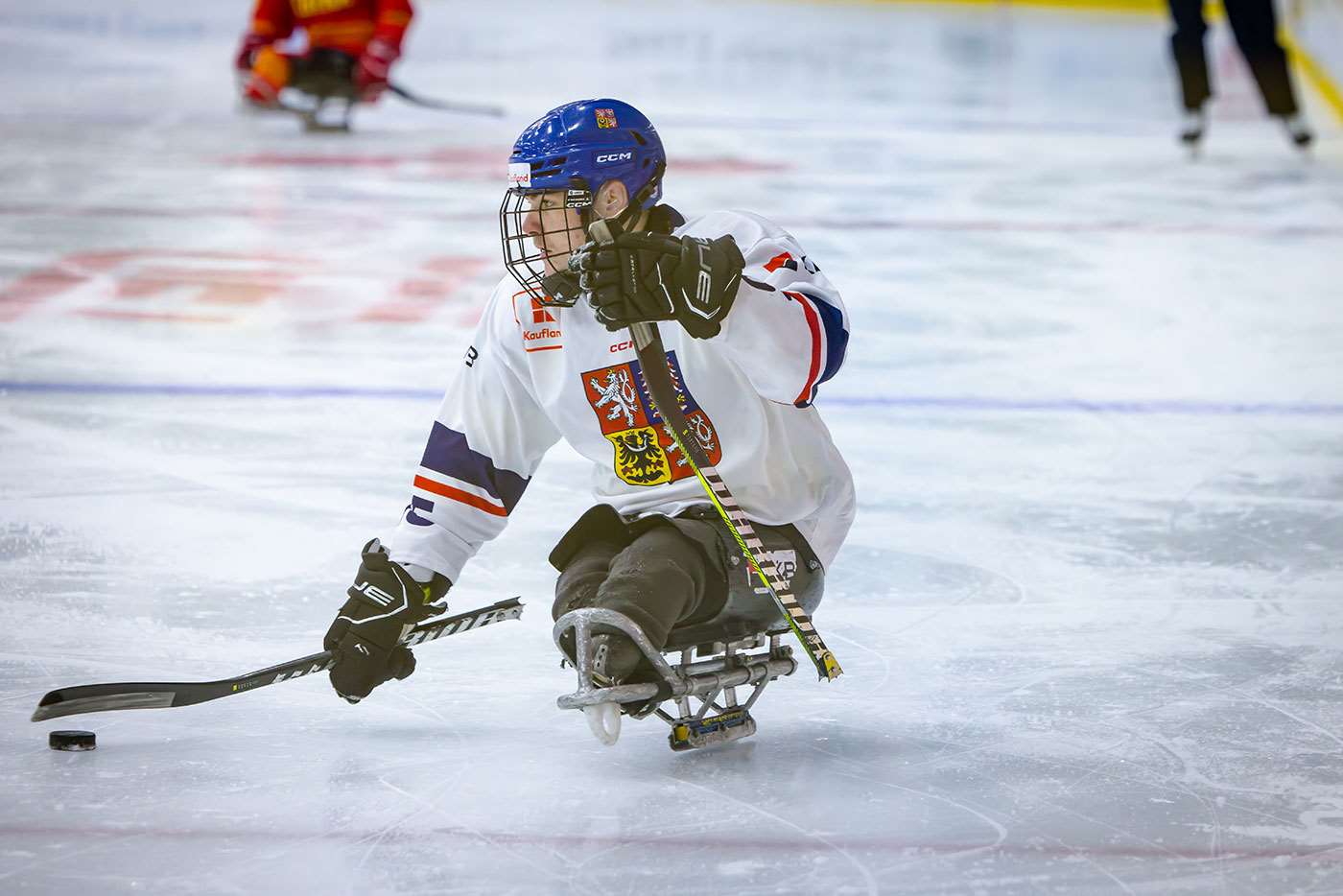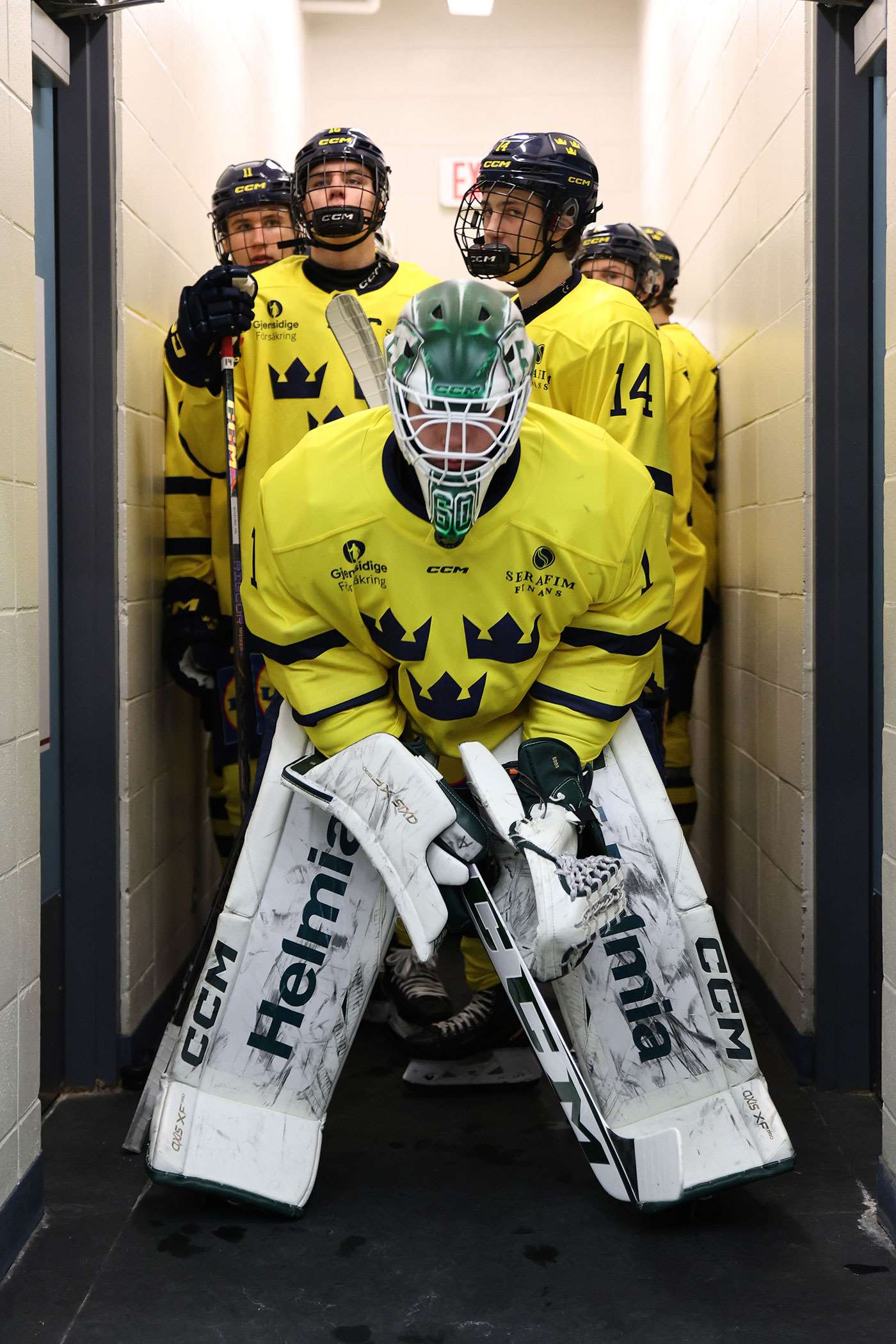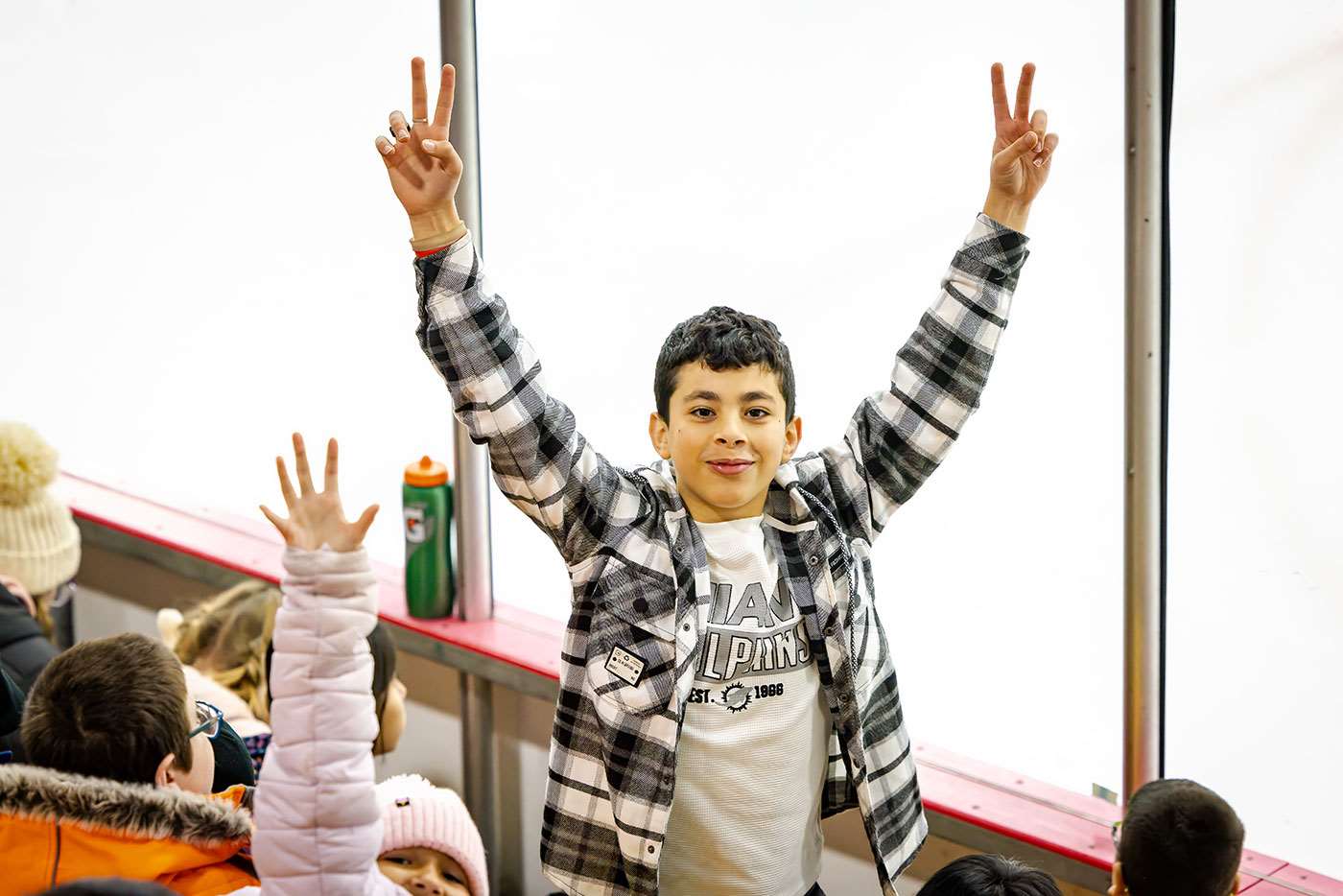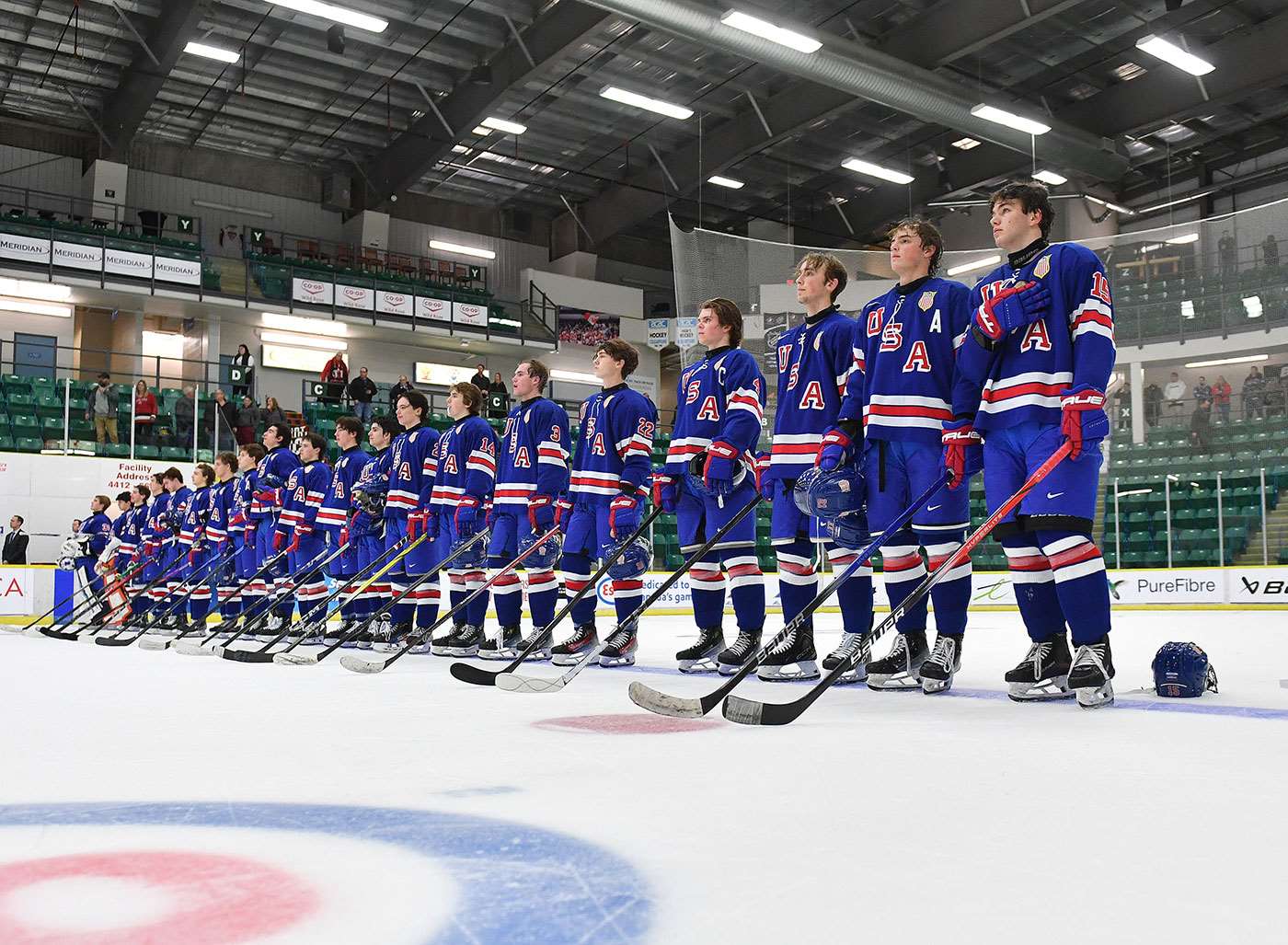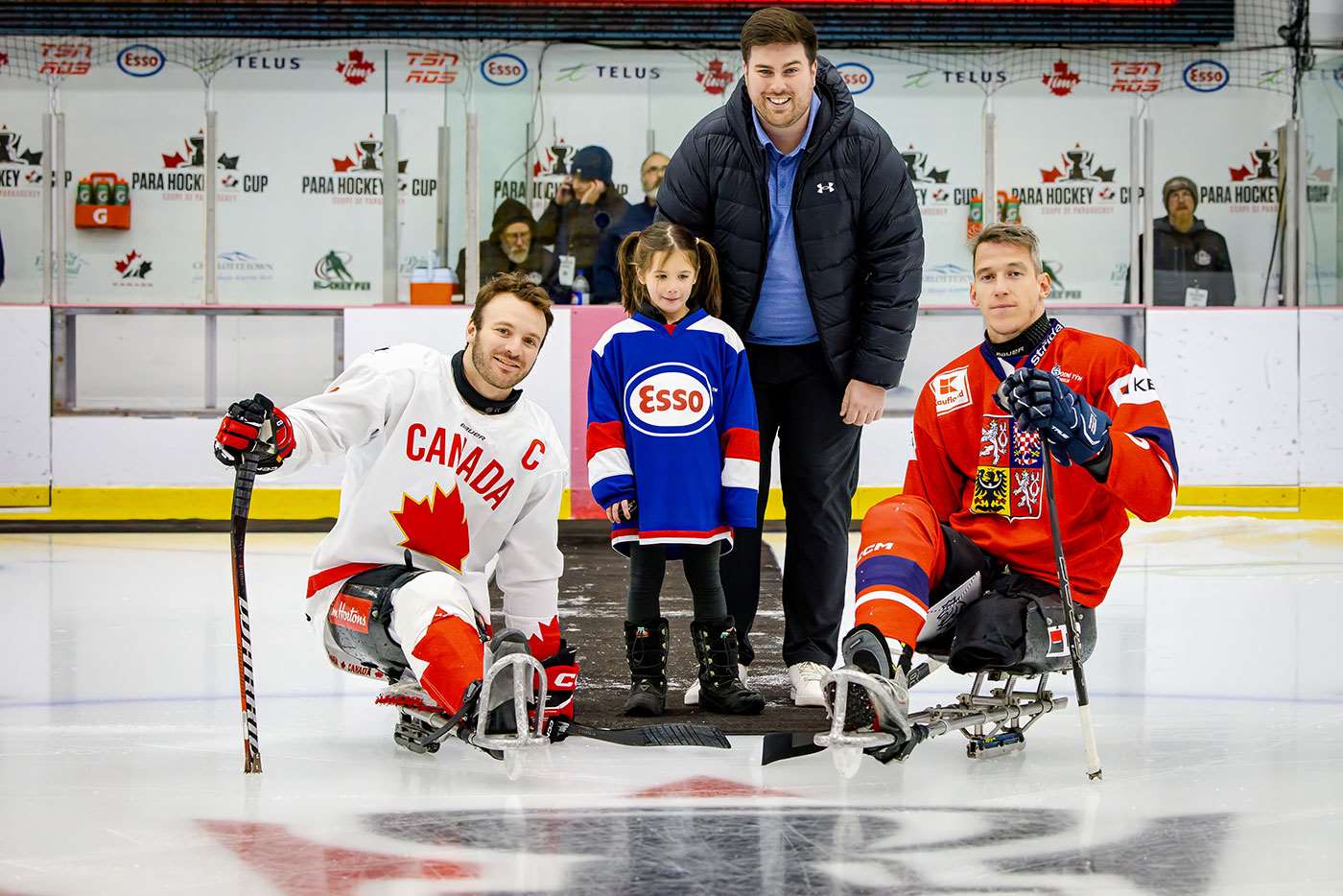Being a goaltender is in Mitchell Garrett’s DNA. No matter what sport he
plays, he always wants to be the last line of defence.
After playing as a catcher in baseball and a goaltender in soccer growing
up, the Surrey, B.C., product began playing hockey at 10 years old.
“My dad grew up as a soccer player,” Garrett says. “Telling him that I
wanted to switch into hockey was not necessarily the news he wanted to
hear.”
Garrett played between the pipes for 12 years, usually in house league or
occasionally in rep. After high school, he continued to play recreationally
with some of his minor hockey teammates.
“I remember when my accident happened, it was like a month before the new
season started,” the 29-year-old says. “So that was a shock to them hearing
that I wasn’t going to be able to play for them ever again.”
On July 29, 2017, Garrett was camping when he decided to take a friend’s ATV
for a drive. When he didn’t return, a search party found Garrett had crashed
on the side of the road.
He was airlifted to Vancouver General Hospital and diagnosed with a T4
complete spinal cord injury. Despite his prognosis, Garrett progressed
quickly and completed rehabilitation within three months.
“It was a really fast process. I remember everybody telling me this is going
much faster than what it’s typically supposed to,” he says. “I really wanted
to make myself goal-oriented when I was in rehab because I didn’t want to be
there. I just wanted to get going in my life, and I knew it was going to be
a major change.”
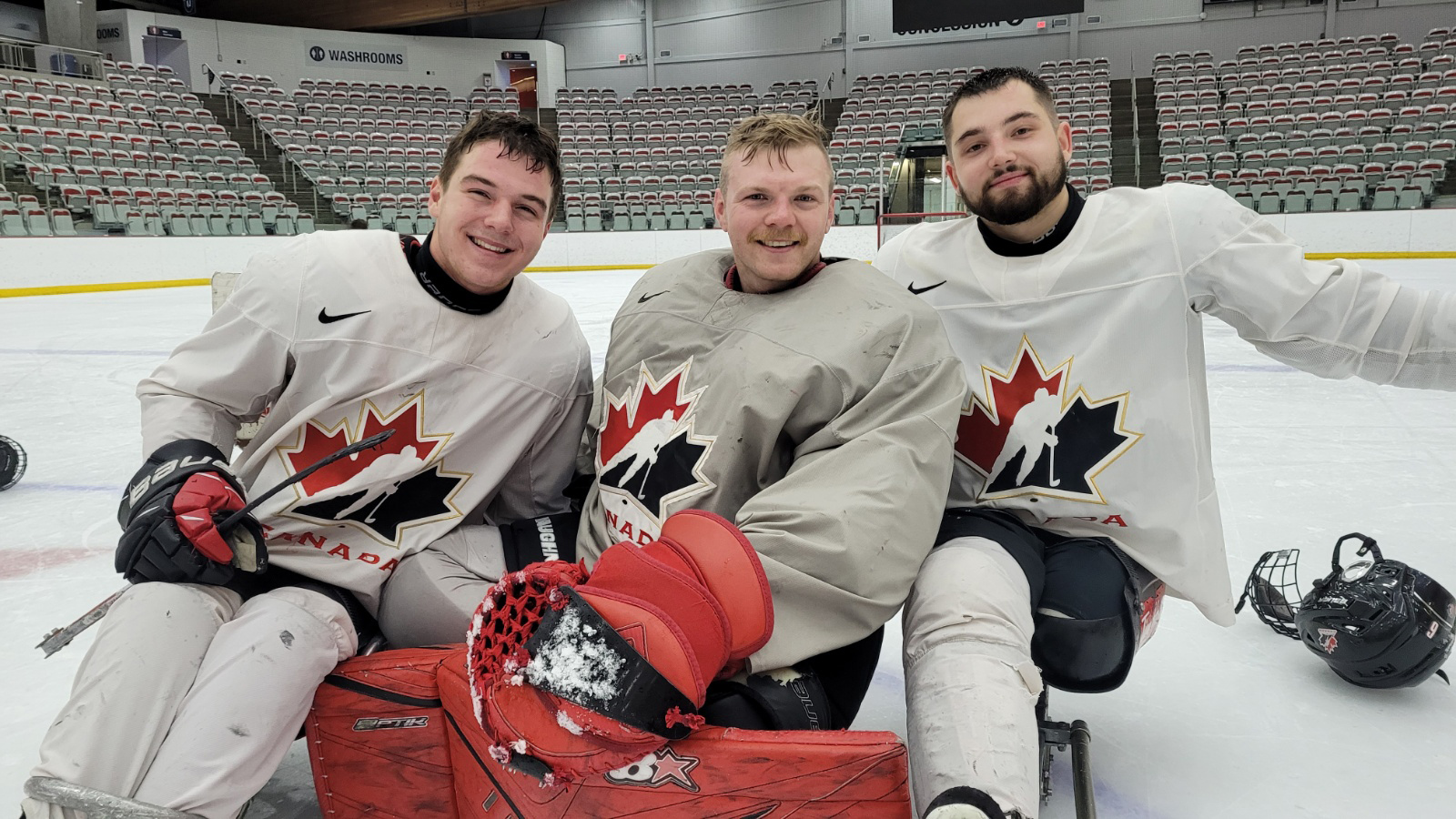 Matteo Pellizzari (left), Mitchell Garrett and Brendon Hurst.
Matteo Pellizzari (left), Mitchell Garrett and Brendon Hurst.
Throughout the entire process, hockey was always on Garrett’s mind.
“I don’t remember my injury at all. I woke up in the hospital and I’m like,
‘Where am I right now?’ [They told me I’m] in the hospital, and I was like,
‘Oh, well I have a playoff game tonight, I need to go play hockey.’”
Now paralyzed from the chest down after his injury, Garrett immediately
shifted his focus to how he could get back on the ice and began researching
para hockey.
“I studied [Team Canada goaltender] Dom Larocque. I watched every single
interview I could find of him,” he explains. “I remember watching it three
or four times over and pausing on the on-ice clips, just really analyzing
his setup and trying to figure it out for myself. [He] was a huge
inspiration.”
More than nine months after his accident, Garrett returned to the ice and
got back in net—this time in a sled.
“It was pretty monumental for me getting back to being a goaltender. My
parents were there; my dad was on the ice and my mom was watching,” Garrett
recalls. “I remember that skate, I just looked like a fish out of water.
“When I got off the ice, my mom was just like, ‘Is this for you? Do you
really want to do this? It looks like you’re struggling out there.’ I just
told her eventually it will be smooth, and everything will be good.”
Although he was back on the ice, his new reality did present some challenges
for playing para hockey. Without the ability to move anything below his
chest, it provided some limitations for being a goaltender again.
“[Other goalies] have their entire core to use and they have their legs and
their knees to stand up on. I remember everybody telling me how much of a
disadvantage I was at, [but I] never even consider that a disadvantage for a
second,” he says. “We’re still playing the same game. We’re still going
after the same goal.”
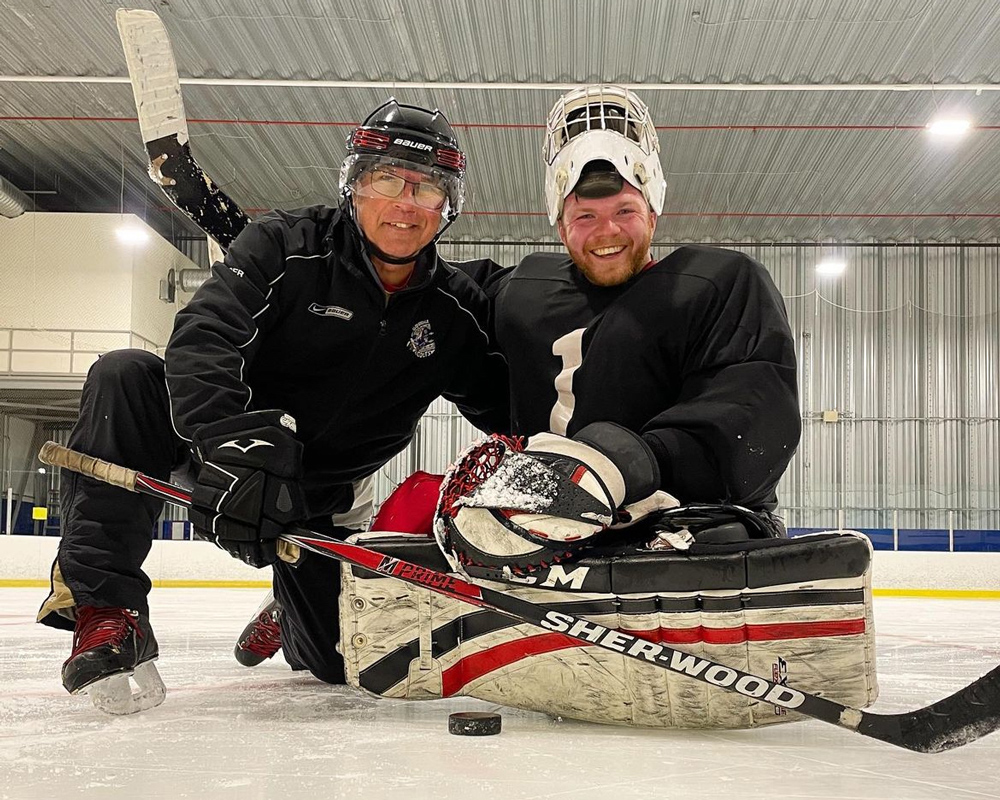 Mitchell with his dad, Ken Garrett.
Mitchell with his dad, Ken Garrett.
Garrett set his eyes on his next goal—earning a spot on Canada’s National Para Hockey Team—and got to work. After every ice time, he would look at his
sled setup and make adjustments.
“I have a shed at my place and that’s like the tool shed. That’s where all
the hard work off the ice goes down, just to ensure I’m in tip-top shape
when I’m out there,” he says. “I was consistently tweaking my sled for the
longest time; moving it up, moving it down, figuring out where my blades
go.”
His home rink, the Langley Sportsplex, provided free ice time so he could
practice throughout the year. On the ice, Garrett’s dad Ken joined him to be
a shooter for his practices and he became the head coach of British
Columbia’s para hockey team.
“I know I wouldn’t be able to do it without him,” Garrett says. “My dad has
been an enormous help throughout this entire process, making sure that it’s
the most enjoyable for me.”
His hard work on and off the ice began to pay off, and Garrett was invited
to participate in his first selection camp with Canada’s National Para
Hockey Team ahead of the 2022-23 season.
“It’s always good to have somebody involved that has experience playing the
position and the game prior to their accident,” says Russ Herrington, head
coach of Canada’s National Para Hockey Team. “That was the one thing that we
noticed right away with Mitch was that both glove hands and his ability to
track the puck, that was something that transferred over from his previous
experience.”
“It didn’t really go as I planned,” Garrett says about selection camp. “To be honest, it wasn’t a
great showing for me. I think maybe I was a little starstruck at the camp.
[I had never] played with these caliber players and these are players who
I’ve wanted to play with for so long.”
After camp concluded, Garrett took the experience to heart and got back to
training even harder for his next opportunity.
“I just told myself that I’m starting to trend in the right direction and
just to stay on track and continue what I was doing because I noticed that
it was working for me,” Garrett says.
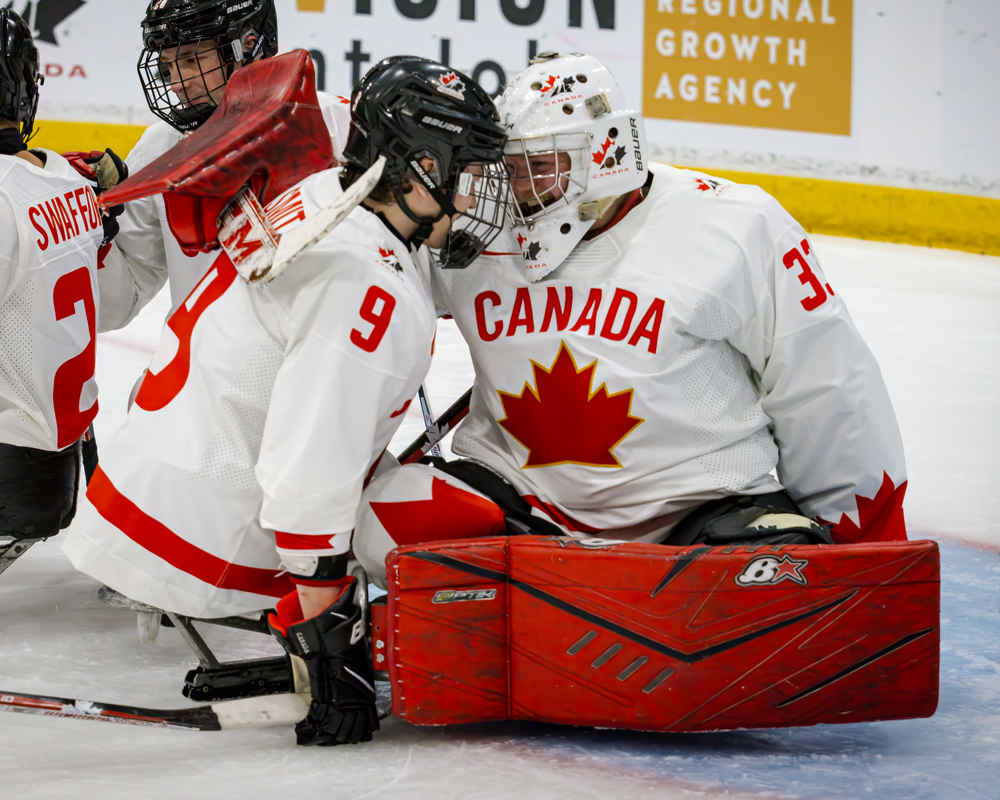 Corbyn Smith (left) and Mitchell Garrett celebrate after beating Czechia at the 2023 Para Hockey Cup.
Corbyn Smith (left) and Mitchell Garrett celebrate after beating Czechia at the 2023 Para Hockey Cup.
When he returned to selection camp in September, his improvements were
evident to the coaching staff.
“I think he’s more comfortable in a sled,” Herrington says. “I think he was
a little timid [getting to the top of the crease] early on, and now we see
him be a little more assertive in his positioning and challenging the
shooter.”
After dreaming of making Team Canada for over six years, Garrett finally got
the phone call that he would be making his international debut at the 2023 Para Hockey Cup in Quispamsis, New Brunswick.
“That’s one of the best parts of this job is delivering that type of news.
We’re really excited to have him here with us,” Herrington says. “Our
veterans do such a good job of celebrating opportunities like that because
it wasn’t too long ago that they were donning the jersey for the first
time.”
“From my family to my friends to my girlfriend, everybody has really played
a part in this process,” Garrett says. “That was a really cool moment on the
phone (telling my parents I made the team); you could just feel how proud
[my dad] was through the phone.
“For my mom, after that first ice time with her being like ‘Is this right
for you,’ and then being able to tell her that I made the team—it was a
full-circle moment.”
In Quispamsis, Garrett is looking forward to putting on the Maple Leaf for
the first time, playing on the international stage and hopefully inspiring
more members of the paraplegic community to start playing para hockey.
“I have to hold back my tears every single time I think about it because
[playing for Team Canada] is a goal that I’ve had since I was eight,” he
says. “Most people consider other sports just because of my disability… I’m
very excited to be changing that narrative.”

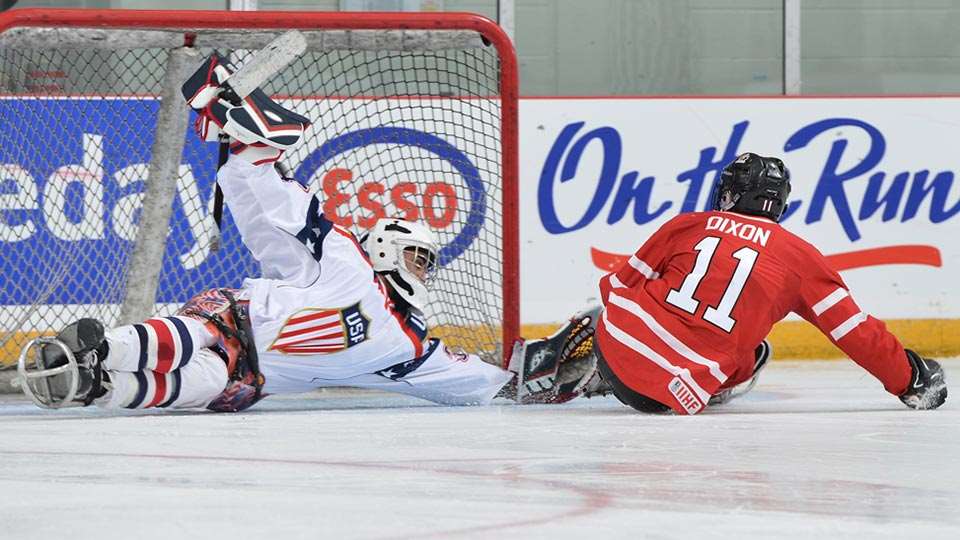


















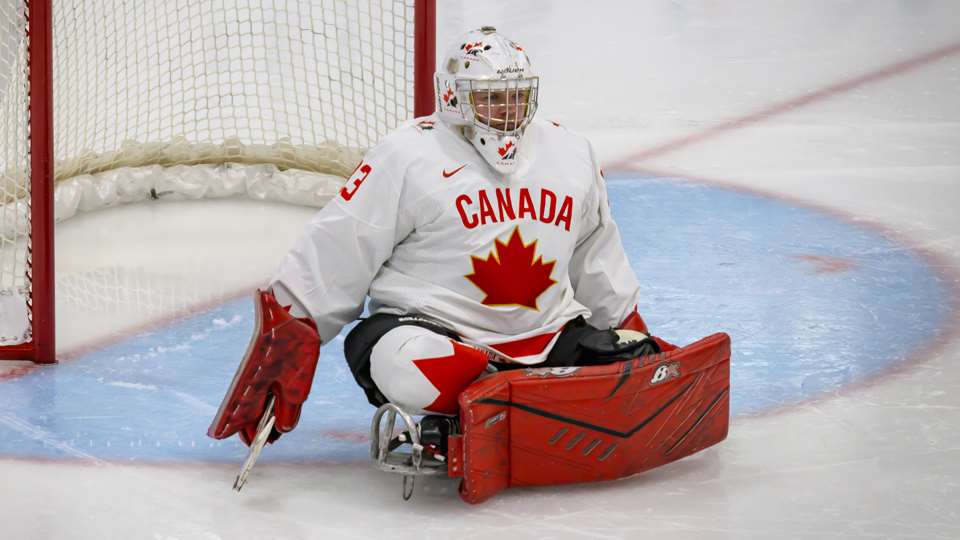
 Matteo Pellizzari (left), Mitchell Garrett and Brendon Hurst.
Matteo Pellizzari (left), Mitchell Garrett and Brendon Hurst.
 Mitchell with his dad, Ken Garrett.
Mitchell with his dad, Ken Garrett. Corbyn Smith (left) and Mitchell Garrett celebrate after beating Czechia at the 2023 Para Hockey Cup.
Corbyn Smith (left) and Mitchell Garrett celebrate after beating Czechia at the 2023 Para Hockey Cup.